Black Market Pudding
We talk to artist John O'Shea about his ethically friendly black pudding. A twist on the traditional recipe, his is made with…

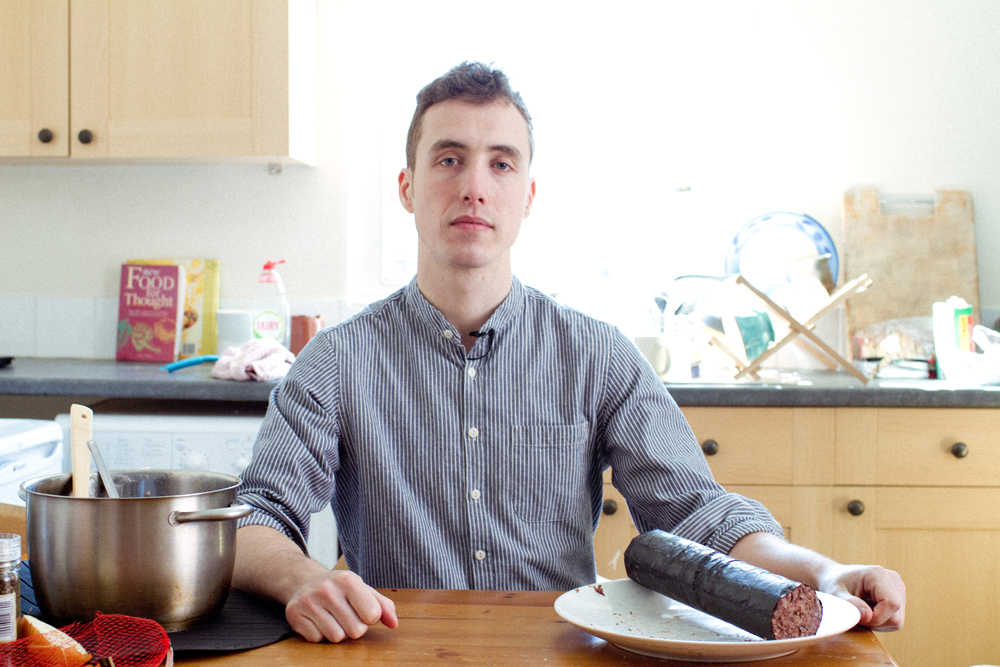
For a dish traditionally made out of excess blood from a slaughterhouse, artist John O’Shea is doing something rather different with his black puddings. He’s taking a novel twist to a very old recipe and creating the dish without actually harming any animals. Sausages made of some sort of blood exist in cuisines across the globe, and John’s particular recipe is based on the traditional combination of herbs, cereals and pig’s blood that has been a staple of British and Irish diets for centuries. Except his Black Market Puddings have one difference: they are made with the blood of a living pig. Due to pesky legal requirements, John must enlist the services of a veterinary professional to extract the blood each time, but about half a pint of pigs’s blood (well within legal limits for animal health and well-being) is more than enough to make one robust black pudding. When you dine on Black Market Pudding you are actually taking blood from a living animal.
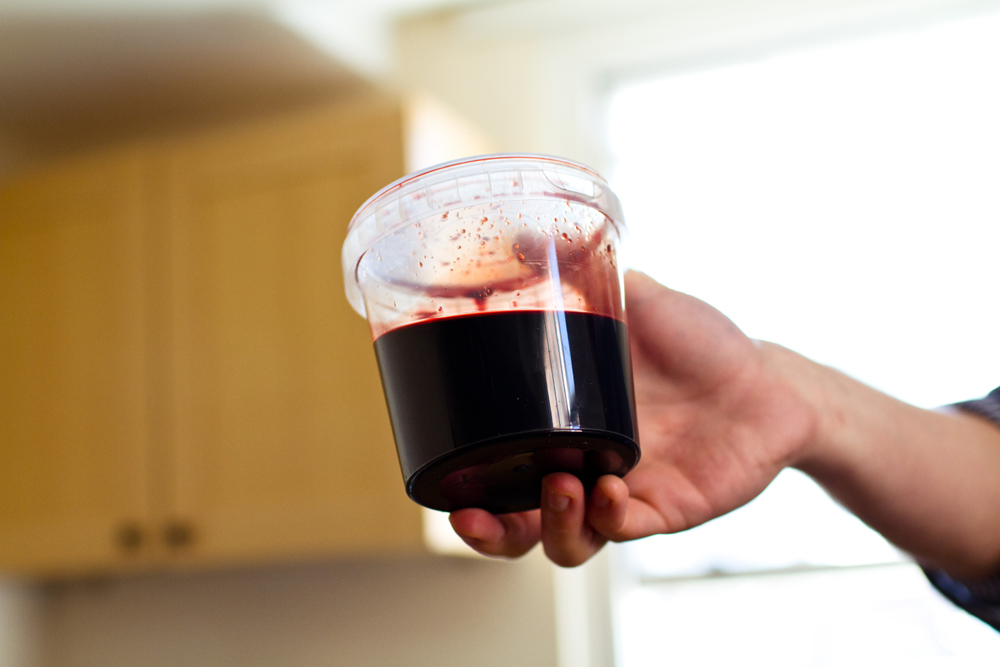
The first batch of prototype Black Market Puddings were created for the Food Forward exhibition in Stroom, the Dutch art centre in the Hague, where guests were invited to respond to the proof-of-concept pudding, which was served up as hors d’oeuvres. A lot of vegetarians, John attests, were enthused that they could enjoy an animal-based product safe in the knowledge that no pig had died in the production. And all in attendance were struck, not only by how tasty the dish was, but its novel provenance. Of course what he’s creating is more than just a novel take on blood sausage. Removing such a prominent link in the established food chain has the potential to unsettle many of our assumptions about consumption.
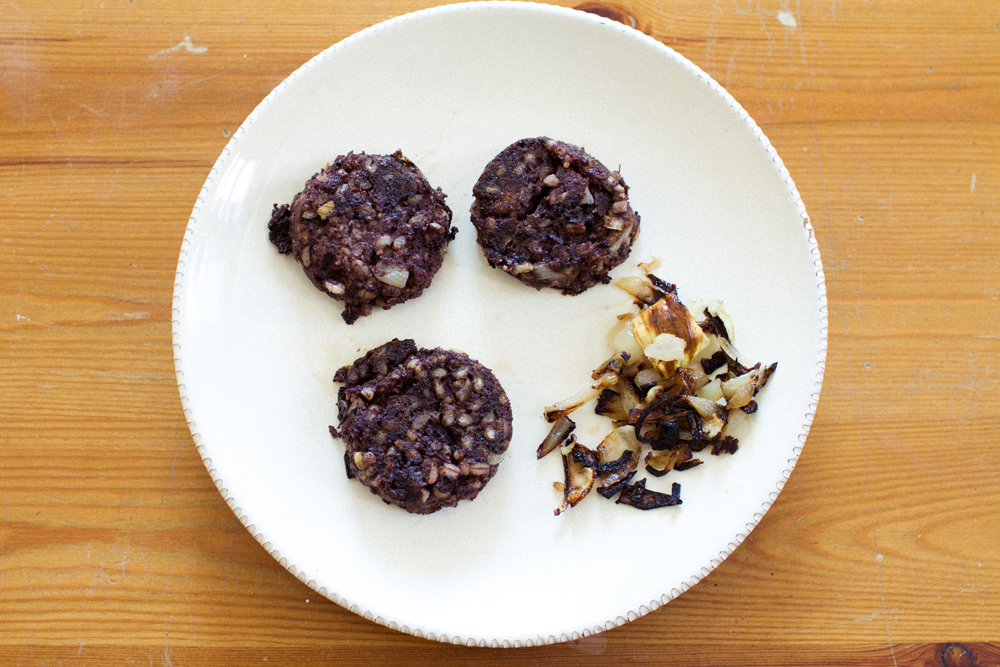
As John, a vegetarian since 2008, explains, Black Market Pudding doesn’t quite fit with the logic of the human carnivore dominating from the top of the food chain. ‘When you dine on Black Market Pudding you are actually taking blood from a living animal’, he says of the dilemma. ‘Technically that puts you in the position of being a more of a parasite, than a traditional carnivore. And this is something I may have to help people come to terms with.’
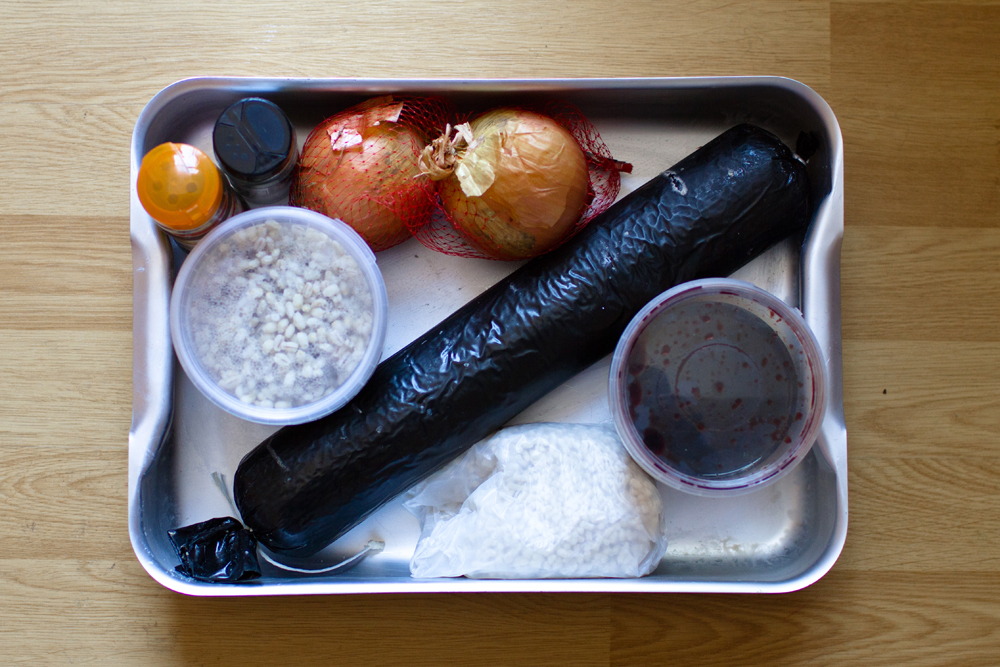
The project also pushes the concepts of fair trade and organic to a far more extreme conclusion. For consumers empowered by growing conversations of provenance and ethical transparency, simple provision of a product is no longer enough. By paying a little bit extra, shoppers can demand that no exploitation occurs all the way along the chain of supply, whether that’s through buying fair trade coffee to support an ethical industry or choosing organic produce to support animal welfare. ‘We’re pushing that ethical payoff a step further’, explains John. ‘If you purchase Black Market Pudding not only are you buying a delicious black pudding, but you are partaking in a product that takes the animal out of the food chain. So you can consume the blood of the animal, while simultaneously protecting the animal.’ As the project continues, John is actively negotiating how to take care of the Black Market Pudding Pigs for the duration of their natural lives. But, subsidising an animal outside of the established food chain won’t come cheap, and the end result will be a black pudding fit for a king rather than a hangover breakfast.
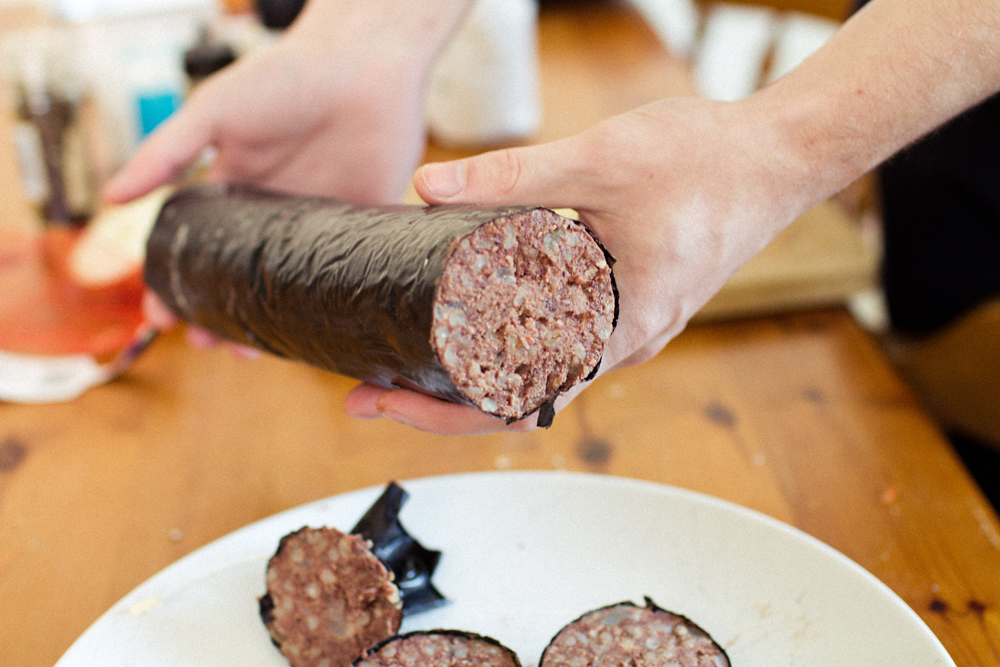
No foodstuff made from the blood of a living animal has ever been brought to the market. John anticipates (and indeed relishes) other consequences which could result from Black Market Pudding carving out a new section in the marketplace. For one there is no regulatory infrastructure in place to cope with such a product, but that uncertainty is part of the appeal: ‘I’m interested to see how Black Market Pudding will be regulated’, muses John. ‘My hope is that by bringing an unusual situation into the marketplace, this will engender new policies and thinking around our consumption of animal products and foodstuffs.’
http://www.blackmarketpudding.co.uk/



Discussion